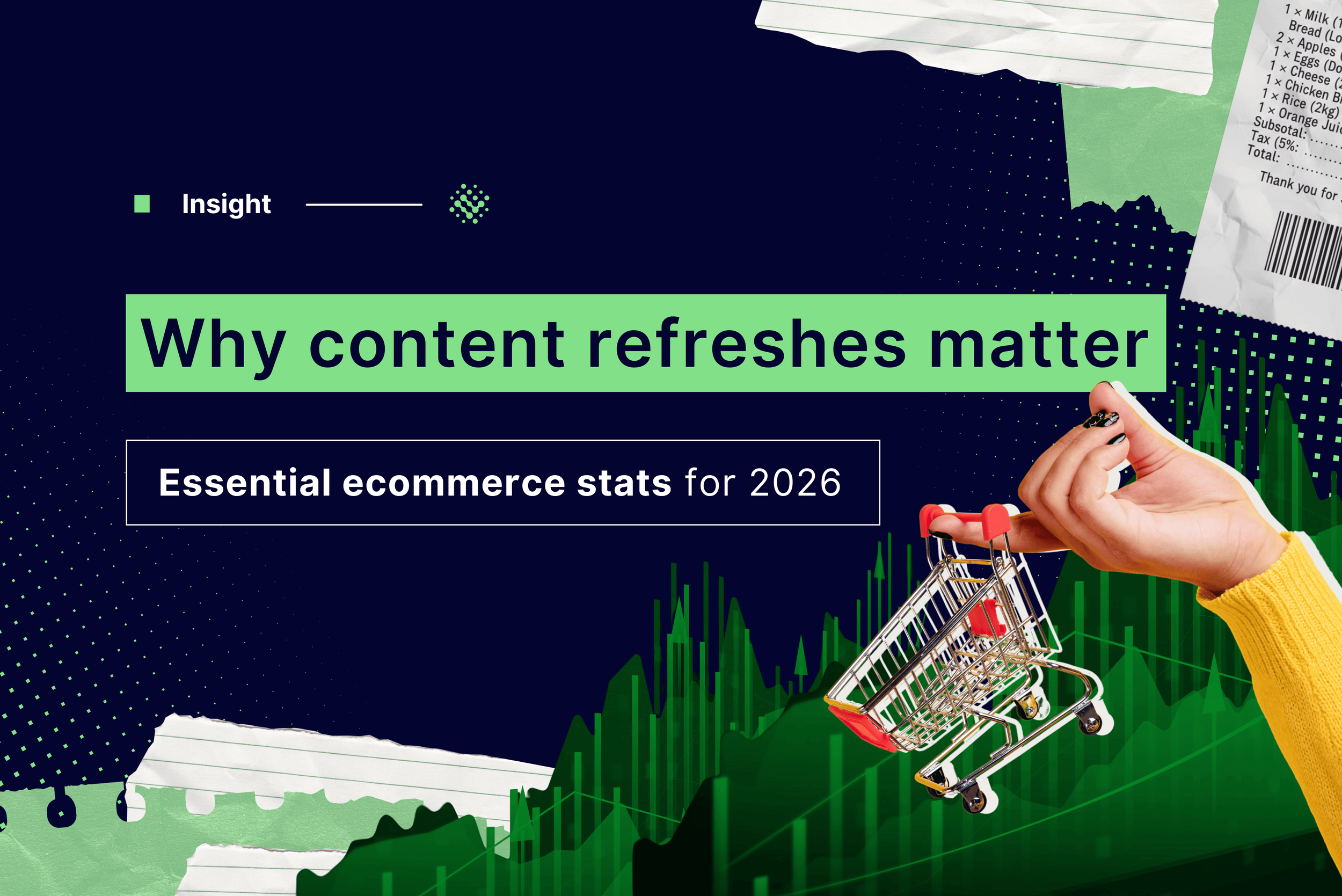What’s the best ChatGPT alternative? The Current State of LLMs in Ecommerce
LLMs are changing everything we thought we knew about Ecommerce. From advancing content generation to transforming the way you interact with customers, it’s harder than ever to stay up to date with the status-quo. And there’s so many more options than ChatGPT out there! Read on to explore which ChatGPT alternative best suits your needs.
As things stand, Large Language Models (LLMs) are significantly impacting the Ecommerce sector and show no signs of slowing down. By revolutionising content creation, customer interactions, and operational efficiencies, these sophisticated AI models are embedding themselves as essential tools for online retailers seeking to maintain a competitive edge. But with so many options to choose from, what should you look for when selecting the best LLM for your Ecommerce team’s needs? The following overview should help you focus your LLM strategy.
Which LLM is best for my Ecommerce team?
OpenAI's GPT-4 and its latest iteration, GPT-4o, remain at the forefront of LLM technology with their advanced multimodal capabilities [1]. These LLM models can process text, image, and audio inputs, presenting new opportunities for Ecommerce businesses. With GPT-4o, we’re seeing the astonishing rise of customer service chatbots that can comprehend text queries, analyse product images, and respond vocally – allowing for more efficient and personalised customer interactions.
However, both within the Ecommerce sector and on a wider scale, the LLM landscape is fiercely competitive. There’s plenty of alternatives to ChatGPT on the market. Chief amongst them is Meta's Llama 3, which offers performance comparable to GPT-4 at a significantly lower cost, making it an attractive option for budget-conscious Ecommerce brands [2]. This cost-effectiveness could democratise access to advanced AI capabilities for smaller Ecommerce enterprises.
Other LLMs include Anthropic's Claude, which stands out for its strong focus on alignment and ethical considerations [3], and Google's Gemini, which excels in translation: the ideal LLM for Ecommerce teams with a global customer base [4].
Meanwhile, GitHub's Copilot – while primarily designed for coding assistance – has potential Ecommerce applications for businesses developing custom shopping platforms or integrating AI into their existing systems. This LLM’s ability to generate code based on natural language prompts could streamline the development of Ecommerce features and functionalities, potentially reducing development time and costs. If you’re looking for a ChatGPT alternative that specialises in coding, Copilot might be your best option.
At the same time, Ecommerce teams looking for an LLM shouldn’t overlook open-source models. These models allow businesses to download the LLM and run them on their own infrastructure, opening up extensive possibilities for customisation and fine-tuning. Open-source models are particularly valuable for Ecommerce platforms seeking to generate product descriptions that align perfectly with their brand voice and style guidelines. However, it's important to note that implementing and maintaining these models requires significant technical expertise and computational resources, which may be challenging for some businesses. If you’re looking for an LLM that is plug-in-and-play, in-house models aren’t the right ChatGPT alternative for your business.
What are the challenges of LLMs?
While LLMs offer numerous benefits, they also present challenges. The potential for generating inaccurate or biased content is a significant concern – and something that Ecommerce teams should be particularly cautious about, where product descriptions and customer interactions directly impact sales and brand reputation. Ecommerce businesses should implement robust quality control measures to mitigate these risks from LLMs. Additionally, data privacy and security concerns ought to be carefully addressed, especially when handling sensitive customer information.
For businesses aiming to stay informed about the latest LLM developments, the Chatbot Arena serves as a valuable resource. This platform facilitates real-time comparisons of different chatbots (including all the ChatGPT alternatives mentioned, and more!), allowing users to evaluate their performance across various tasks. It provides an effective means of identifying emerging models that may be suitable for specific Ecommerce applications [5].
Although fears of AI posing an existential threat continue to abound, a recent study from the University of Bath and the Technical University of Darmstadt offers reassurance. The research indicates that LLMs cannot learn independently or acquire new skills without explicit instruction, despite their impressive capabilities. This suggests that LLMs remain inherently controllable and predictable, hopefully alleviating the worst doomsday concerns about uncontrolled AI proliferation [6].
Still, vigilance is of course necessary. While LLMs may not pose an existential threat, their potential for misuse remains. Ecommerce businesses must be cautious of potential LLM-gone-rogue scenarios, such as the generation of fake reviews or misleading product descriptions. Implementing robust oversight and quality control measures is crucial when deploying LLMs for Ecommerce use-cases.
What's next for LLMs and Ecommerce?
As we look towards the future, the role of LLMs in Ecommerce is poised for continued growth. From creating personalised shopping experiences to automating content creation, LLMs are fundamentally changing online business operations. The key for Ecommerce brands is to remain informed about the latest LLM developments, experiment with different models (crucially – look beyond ChatGPT!), and strike an appropriate balance between automation and human oversight. As LLMs continue to evolve, ongoing evaluation and adaptation will be crucial for Ecommerce businesses to maximise benefits while mitigating potential risks.
Sources:
[1] OpenAI. (2024). Introducing GPT-4o. https://openai.com/index/hello-gpt-4o/
[2] Meta AI. (2024). Llama 3: Open Foundation and Fine-Tuned Chat Models. https://ai.meta.com/llama/
[3] Anthropic. (2024). Claude's Constitution. https://www.anthropic.com/news/claudes-constitution
[4] Google AI Blog. (2024). Introducing Gemini: Google's Most Capable AI Model. https://ai.googleblog.com/2023/12/introducing-gemini-googles-most-capable.html
[5] Chatbot Arena. (2024). Leaderboard. https://chat.lmsys.org/?leaderboard
[6] University of Bath. (2024). AI poses no existential threat to humanity – new study finds. https://www.bath.ac.uk/announcements/ai-poses-no-existential-threat-to-humanity-new-study-finds/









